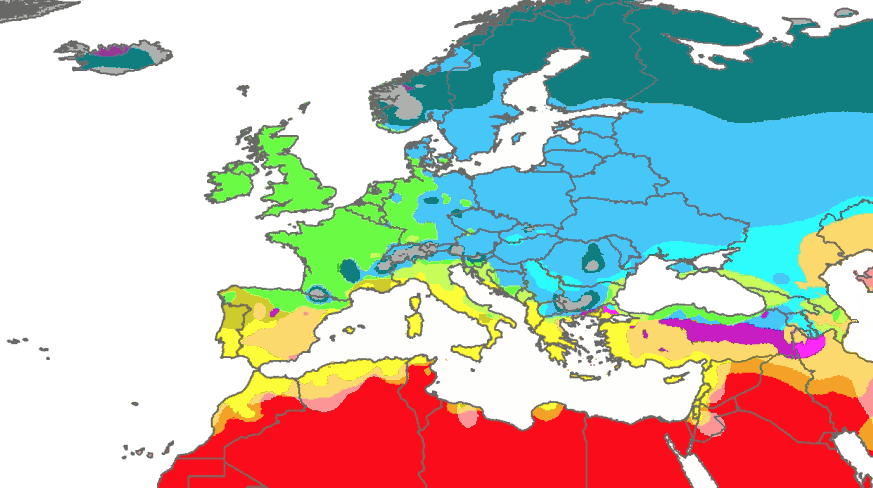A study by George Mason University in Virginia calculates changes in climate zones due to global warming. In the next 80 years will change classification up to 88% of Europe and over half of North America
Almost half of the Planet will change climate by the end of the century
(sustainabilityenvironment.com) – In the coming decades, almost half of the Earth could be in different climatic zones from those to which it belongs today. Leaving less time to adapt to animal and plant species. Especially in the polar regions and in Europe, one of the “hot spots” that will be hardest hit by this transformation.
The maps of Köppen-Geiger

This is stated by a study published in Earth’s Future that has calculated the impact of global warming on the classification of emerged lands according to the Köppen-Geiger system. It is a very simple division of the globe into 5 different climatic zones depending on the vegetation present, built from 3 criteria: temperatures, rainfall and seasons.
Read also In March, global warming hit +0.51°C: only worse in 2016
In the Köppen-Geiger classification, Italy appears almost entirely in the C group, which identifies temperate climates, with two large subtypes in wet summer and dry summer. Only parts of the Alps fall into category D as cold climates with dry winter. A picture that could change radically by 2100.
How the climatic zones of the Planet change
According to researchers at George Mason University in Virginia, in fact, between 37.9 and 48.1% of the lands emerged around the globe by that date will be in a different climatic zone from the current one. And Europe is one of the two quadrants, along with North America, where this change will be most pronounced. Depending on the emission scenario used, it can be expected that they will change classification from 71.4 to 88.6% of European regions, and from 51.2 to 65.8% of North American ones.













